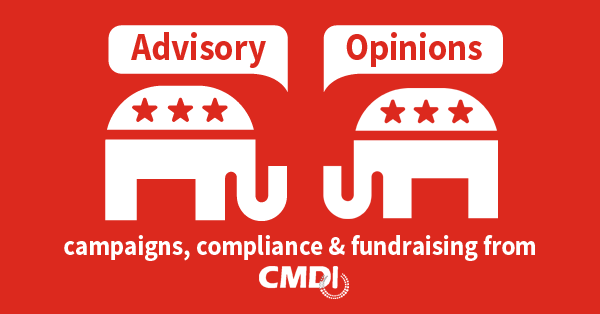This summer, there have been two big changes for 501(c)4 organizations, one from the IRS and one from the US Courts. First, the IRS announced they would no longer collect the Schedule B portion of 990 forms for 501(c)4 organizations. This eliminates the requirement to submit the names and addresses of major donors. Secondly, a DC Circuit Court judge ruled that 501(c)4 organizations must disclose the names of donors who contribute more than $200 towards an independent expenditure.
The hosts of Advisory Opinions discuss what these two changes mean for 501(c)4 organizations.
IRS: No Longer Collecting Schedule B Form
This month, the IRS announced that c4s and trade associations would no longer require nonprofits to file Schedule Bs. A Schedule B is a report that lists the names and addresses of major donors and is filed in conjunction with annual 990 forms.
While 501c3 organizations (food pantries, animal shelters) and 527 organizations are still required to submit a Schedule B, trade associations and 501(c)4s are only required to keep this information on hand in case the IRS requests it.
Why did they do this?
The IRS claims the Schedule B requirement caused excessive paperwork that wasn’t needed. It also presented problems with the inadvertent disclosure of this information.
While IRS 990 forms are publicly available, the Schedule B portion is supposed to be redacted. However, leaks and mistakes have made this information available on the web for some organizations. In 2012, the Human Rights Campaign illegally obtained the Schedule B of the National Organization for Marriage. HRC then posted it on their website. The IRS settled a lawsuit and payed $50,000 for the leak.
State websites sometimes inadvertently post Schedule B forms on their websites. While they may require organizations to submit Schedule Bs to operate legally in the state, some states have failed to redact that part of the filing before releasing them on public websites. For example:
In 2017, Project Veritas’ donors were revealed when the state of Oklahoma published the unredacted form.
In 2016, Americans for Prosperity won a lawsuit against Kamala Harris, who was at the time serving as the California attorney general, for requiring AFP and other organizations to submit their Schedule Bs to the state. California also inadvertently released 1,800 unredacted Schedule B forms on their website.
New Reporting Requirement for Dark Money
A recent federal court decision may have long-lasting repercussions for 501(c4) organizations engaged in political activity.
Ruling on the “dark money” issue in Citizens for Responsibility and Ethics in Washington vs. FEC, Chief Judge Beryl Howell found that 501(c)4 groups making independent expenditures in federal races must disclose donors contributing to independent expenditures. In a case that started in 2012, Howell wrote that 501(c)4 organizations making independent expenditures of more than $250 in a calendar year must disclose each donor who contributed more than $200 towards that IE. This information must be reported in regular filings to the Federal Election Commission.
For more information on the CREW vs. FEC ruling, please see our previous post, Court: Dark Money Donors Must Be Disclosed.
Listen to the episode and subscribe to Advisory Opinions on Google Play, iTunes, and Tunein.
The views and opinions expressed on this podcast are those of the hosts and do no necessarily reflect the policies or positions of CMDI, or any other agency, organization, employer, or company.
